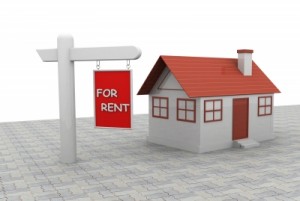It is not news that today’s housing market is less than ideal. For those homeowners who are attempting to sell, you may find it hard to get the right buyer. Therefore, many homeowners are considering renting their property until the market improves. However, many homeowners are unaware of the responsibilities and requirements of becoming a landlord. If you are considering renting out your home, you must first understand these requirements to ensure a successful experience without future hassles.
When You Become a Landlord, You Have Less Time for Yourself

There is one factor of becoming a landlord that many fail to take into consideration. Your free time may not always be yours. As issues arise with your tenants you may find yourself visiting the property during your free time. Every leak, broken window, failed A/C unit, etc. becomes your responsibility to fix. Sometimes these issues may arise in the middle of the night or when you have prior engagements. Some of these issues may be repaired with a phone call to a plumber or professional, other times you may be required to go to the property, so expect to lose some of your “me” time.
You Must Keep it Legal
There is a lot of red tape involved in providing housing to an individual or family. Many state laws differ from others, so research may be needed. Other laws are common, such as:
- What is allowed to be asked during a tenant interview
- What is considered discrimination by the Fair Housing Laws
- How to handle a tenant’s security deposit
- Which safety codes must be met, such as regulations on smoke detectors, security, and hazards
- Which health codes must be met to ensure the home is safe and livable
- How to properly evict a tenant
While these may sound complicated, many states offer plenty of information and documentation to assure you are within the legal regulations and are able to rent your home. Other requirements may include landlord insurance, HOA interviews for your tenants or even a safety inspection prior to renting the home. Failure to meet requirements may accumulate fines and fees that cut into your profit from renting the property.
Mistakes May Be Made
Even the most well-informed landlord may make a mistake. This can be anything from hiring the wrong plumber to repair a leak, the wrong electrician to repair wiring or even choosing the wrong tenant that you are forced to evict only months later. Keep this in mind and plan for the worst. If you are forced to spend more money on repairing the home, or if you have to evict the tenants and spend money on cleaning up the property or accounting for time the property is unoccupied, you will find these expenses can add up.
Not All of the Rent may Be Pocketed
As you discovered with the mistakes that may be made, not all of the rent money will find its way to your pocket. Not only do you need to save for future problems with the property, but the profit is also taxable. This is on top of the property tax you already pay each year. It is suggested that you also set aside $300-$500 a year for future maintenance such as roof repair. Many landlords put their first year’s profit aside before they begin to pocket anything from their renters. This assures you have the funds in case of emergencies.
Renting your property is a great way to create a profit from unused property. If you are still looking to sell, your property can yield profit while attempting to find a buyer. If you decide later that you would rather keep the property and the tenants residing in it, you still have the ability to pay the house off while pocketing some extra cash each month. Take the time to find all the legal requirements before becoming a landlord and plan for future expenses to ensure a great rental experience for you and your tenants.
See Also
- Real Estate on Your Family Finances
- Thinking About Renting Out A Room In Your Home? The Legal Issues You Need To Think About First
- What to Look for When You’re Buying Rental Property
- What Are Good Investments?
- Making an Investment
- Investing in Real Estate
- Five Mistakes the Average Investor Makes
Want to know about becoming a landlord? Check out these resources from Amazon:
- First-Time Landlord: Your Guide to Renting out a Single-Family Home
- Landlording: A Handymanual for Scrupulous Landlords and Landladies Who Do It Themselves
- Every Landlord’s Tax Deduction Guide
- Every Landlord’s Legal Guide
Image courtesy of jscreationzs at FreeDigitalPhotos.net
